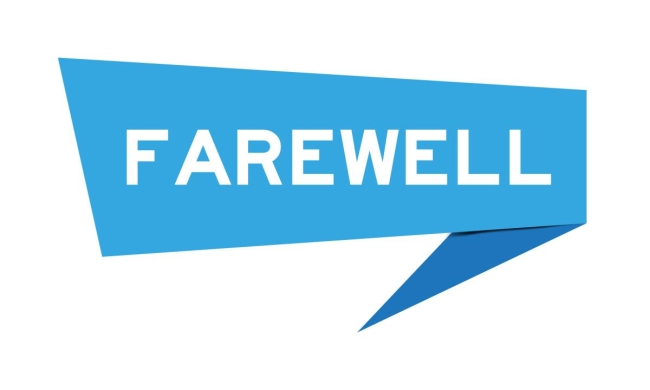You have /5 articles left.
Sign up for a free account or log in.

bankrx/istock/getty images plus
In colleges and universities across America, summer is the season of “greener pastures”—that sanitized, broad-brush euphemism often quoted when coworkers are fired, retired or simply shuffled off “like raccoons in the night,” as a professor of mine used to say. Summer brings a surfeit of boilerplate farewells pecked out by department heads, deans and provosts lauding the virtues of the soon-to-be departed and wishing them well as they ride off into an indefinite sunset.
Quaintly agrarian, “greener pastures” sounds great, but it leaves much to be desired in practice. Only once in my work life, when a colleague in psychology retired to a small acreage of land they had purchased in preparation for their golden years, has the old-timey adage literally applied. More often than not, however, the term “greener pastures” is understood by those who remain as a cover for the various and sundry reasons faculty and staff members who are leaving their posts as part of the Great Resignation. For a myriad of personal, professional and societal reasons, 55 percent of faculty in higher ed have seriously considered either changing careers or retiring early—a staggering number that can only mean our pastures are about to get crowded.
Many people leave not for the ample grazing and sunny climes that the old-fashioned colloquialism implies, but to growing uncertainty—hoping their 401(k)s will keep them fed and watered over the long haul. Others are terminated, downsized or ostracized for being unwilling to “play ball” in the pandemic-era workplace, or marginalized in the advent of a new regime. Even conventional retirees who have dedicated and long-suffering years in the field—those toasted and roasted in jocular farewell receptions and service award dinners—face a more complex, fraught reality than they’re allowed to intimate in farewell speeches pre-edited for palatability and requisite good cheer.
In academe, summer brings so many chirpy announcements about “greener pastures” and “leaving to pursue their dreams” that one begins to feel a swell of unaccountable joy … until we face the hard reality of valued colleagues’ cleaned-out desks and cubbies in the wake of the afterparty.
Granted, farewell emails and the like serve several important functions. They allow the departing professor or administrator to be recognized and celebrated for their contributions. They ready those who remain for the need for replacement, rejuvenation and reinvention. Practically, they allow academic leadership to get out in front of rumors as to the real reasons for the departure—in effect, allowing academic affairs to control the narrative, dressing it up in so many party streamers. Perhaps most important, they can grant the employee leaving on less-than-perfect terms the grace of saving face, suggesting to colleagues that they’re choosing the time and place of their leaving, despite the reality.
Still, I’m for ending the doublespeak of greener pastures in favor of more honest and authentic rituals of leave-taking. If we really want to honor, and give agency to, colleagues making their exit, let’s grant them a modicum of control over their moment.
How might we do this? For starters, we could give the employee a say in the words used to represent and render their departure in institutionwide messaging. We could stop the sanctioning in advance of sanitized, pro forma farewell speeches performed for the good of the college or university rather than the satisfaction of the long-dedicated faculty or staff member. After all, the difficult exigencies of the retirement speech make many soon-to-be retirees anxious at a time when they might be relaxing into what comes next.
Other academicians, meanwhile, relish the public farewell as a chance to take parting shots, both good-natured and critical. Let them speechify without censor. Let them tell us, in their own words and in their own way, why they are leaving and, if relevant, what might, in a different world, have convinced them to stay. A strong college or university, after all, is one that can own up to its faults, laugh at its foibles and learn necessary lessons from those who leave it. In fact, the truth telling of leave-takers can help institutions of higher education better obtain and retain diverse, next-generation talent.
Leave-takers, may your leaving be imbued with the spirit of your tenure. Were you a truth teller, consequences be damned? If so, assume the bully pulpit one last time to name the truths, perhaps self-evident only to you, that we’re not seeing about ourselves, our institution and our sector. Were you a mediator, middle-of-the-roader or consensus builder? Then build important bridges on your own way out—bridges you’ll make to cross rather than to burn. Were you famously quiet and considered behind the desk and around the conference table? Understand that after all these years we may wish for a glimpse behind the veil of your stoicism. But if you want to step away with a few plainspoken words of thanks, or no words at all, let that be your prerogative.
Traditionalists will say taking the muzzle off the farewell address, reception or email is potentially dangerous to campus morale, but I disagree. A reciprocally honest farewell is far healthier and more respectful than corporatespeak, coded euphemism or Chamber of Commerce–style glad-handing and glossing over. Putting an end to “greener pastures” means finding new, more inclusive, more accurate metaphors for the meaningful work we do when we say goodbye.




